The relationship between Popdose’s existence and singer-songwriter Brandon Schott is a long and friendly one. Over the years, we’ve shared his latest efforts and engaged him on subjects like music, life, and existence. These are all subjects touched upon in his latest effort titled Room 8. The album is very different from his recent previous efforts in that it is literally just Brandon and his guitar in a hotel room (“8” by definition), trying to make sense of modern times and their accompanying noise and anxiety.
The site is celebrating ten years of existence and, coincidentally, so is Brandon Schott as today is the tenth anniversary for his remission from cancer.
Both the new album and this milestone are worthy subjects for conversation. Brandon was only too happy to do both.
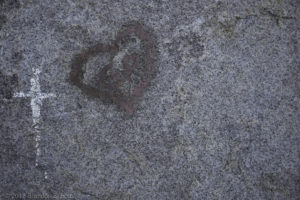 Popdose – You have mentioned that Room 8 was recorded in an unconventional way and because you “needed this” (which was how I interpreted your description). First, could you discuss how you did things differently from your regular process and second, what do you think brought you to feel that you needed such a deviation?
Popdose – You have mentioned that Room 8 was recorded in an unconventional way and because you “needed this” (which was how I interpreted your description). First, could you discuss how you did things differently from your regular process and second, what do you think brought you to feel that you needed such a deviation?
Brandon Schott – There was no intention to record an album, let alone do so in this manner and release it so quickly. Back in September 2017, on a whim I reserved a room a couple months in advance at the Joshua Tree Inn for a solo trip to the desert to unplug from the grind a bit and spiritually re-connect. I think I’d been feeling at that time, like many, that there was such an air of intolerance in our social climate, empathy in our public discourse at an all time low – I needed to reset my perspective and Joshua Tree has always been a tried and true source of renewal for me. “¨”¨
When I booked the room, I also impulsively chose the Gram Parsons room, the very room in which he tragically died in the early 70s. Now, the weeks go by and the date grows closer and the weight of the admittedly curious decision to stay in that room slowly came into focus, and I began searching for a way through that darkness. Yet I was still being pulled there, and I didn’t understand why. I wasn’t much interested in being a ‘Gram’ tourist in that space, and it seemed the most reasonable way to approach this would be to claim the room for myself, transform it in a way. So, I decided to do a little writing and packed up a portable Pro Tools rig to capture whatever resulted.
“¨”¨Once I had everything set up the day I arrived, I started singing some of my own existing songs to the space – prayers, peace offerings to myself, to Gram – hoping to sage the vaulted ceilings into my own, one song flowed into another and another…even took on a few live via Facebook. There was definitely a ‘vibe’ in the air, and a movement in my heart. Around dinner time I had around 8 songs, which seemed like a poetic place to break.”¨”¨
 Ten years ago, on February 23, you were informed that your cancer went into remission. I have to think that particular event changed your approach to writing music after that. How might that event have shaped this particular recording?
Ten years ago, on February 23, you were informed that your cancer went into remission. I have to think that particular event changed your approach to writing music after that. How might that event have shaped this particular recording?
Many of the songs I’ve written since (and performed in this session) were certainly informed by that time – in the years that followed I’ve learned a humility and sense of spirit for sure. But its impact on this project was largely subliminal. It wasn’t until I’d burned the Room 8 performances to disc and listened back on my way home that I started to put it together that my ‘calling’ to the desert directly coincided with the 10 year anniversary of my own cancer diagnoses and treatment in the fall of 2007, that I was pulled into a room marked in death to perhaps confront my own life and mortality, and that I did so through song and without intent makes this quite a record of convergence.
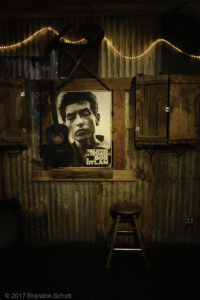 By the same token, let’s play “what if” and pretend your cancer never happened. Ten years later, what might your music have sounded like? Would you have come to the same directions your are in now, or would Alternate Timeline Brandon have been very different?
By the same token, let’s play “what if” and pretend your cancer never happened. Ten years later, what might your music have sounded like? Would you have come to the same directions your are in now, or would Alternate Timeline Brandon have been very different?
Before I was diagnosed, I was already writing for another record – it was a very pop focused project, largely airy in theme and content. Some of the songs (“Verdugo Park”, “Henry”, “Dear Daisy”) were lifted onto later records, but I think it’s hard to say what tone my writing would have taken – what of life’s challenges would have resonated differently, or would my writing have dried up altogether? I don’t know. But I’d like to think there was always a sense of upward reaching to my creative voice – a longing for universal context, I’m just not sure it would have been as intensely informed as it may be now.
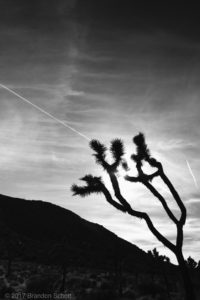 The economy of Room 8 and its intimacy is much different from where independent artists are at the moment. I feel like there is a sudden, added pressure on indie artists to parallel mainstream acts for fear that the music won’t get heard unless it sounds very heavily layered and orchestrated. Is there that sense of the current state of things, that whatever the “independent spirit” is, it cannot survive without a larger budget or ambition. And is Room 8 kind of a rebuttal to that notion?
The economy of Room 8 and its intimacy is much different from where independent artists are at the moment. I feel like there is a sudden, added pressure on indie artists to parallel mainstream acts for fear that the music won’t get heard unless it sounds very heavily layered and orchestrated. Is there that sense of the current state of things, that whatever the “independent spirit” is, it cannot survive without a larger budget or ambition. And is Room 8 kind of a rebuttal to that notion?
“¨”¨I admit that many of my last few records have been very measured and produced, a lot of emphasis placed on orchestration and presentation. Perhaps there was a thought at some point to strip it back on the next recording but I never dreamed that would manifest in this way. The sequence you hear is exactly as the songs were recorded and rediscovered that night, and all on one microphone at that. I guess what marks a shift for me on this one is that Room 8 wasn’t at all premeditated, it simply exists as a pure moment in time. So much so that it was deliberately released two days after it happened, so I wouldn’t have time to overthink it or second guess.
The collection in and of itself is peculiar, in a good way. You do a stripped-down version of your song “Dandelion Rain” but also a pretty emotionally raw version of “We Belong,” which was famously done by Pat Benatar. What prompted these choices?”¨”¨
I honestly just pulled on the thread and let the moment take me where I needed to go. These were all songs of mine that spoke to a heart in need of healing. WE BELONG seemed to speak to a universality, a larger spiritual commitment to each other “whatever we deny or embrace for worse or for better – we belong”. It just fit. As I noted in my press release on the project, these were words I needed to feel in my heart and in my throat – they were all tied into a place of change, of reckoning. Perhaps by letting them out into the world in the way I did, they could provide a measure of that for others. All I can say is that for me, it was one of the most truthful, vulnerable and un-inhibited offerings I’ve ever been party to.
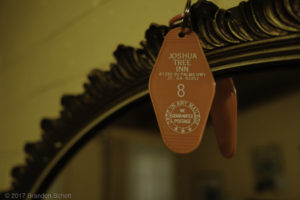 As an artist, where are we in this period of time as artists. Are creators feeling new pressures to either be a mouthpiece or to suppress themselves?
As an artist, where are we in this period of time as artists. Are creators feeling new pressures to either be a mouthpiece or to suppress themselves?
Neither of those approaches really connect with me – but I do believe we owe it to ourselves to continue to be honest and speak our truths without fear. In this case, with so much unrest happening all around us, my contribution at this time is to give of and to myself a measure of hope. In my heart, these songs all speak to our shared humanity – we are all connected, and intensely worthy of each other’s compassion. Room 8 is an ending and a beginning; where I am led next is still a mystery to me, but I hope my voice remains in service of our greater (and greatest) spirit.
Brandon Schott’s Room 8 is available now. You can find it at https://goldenstatemusic.bandcamp.com/album/room-8


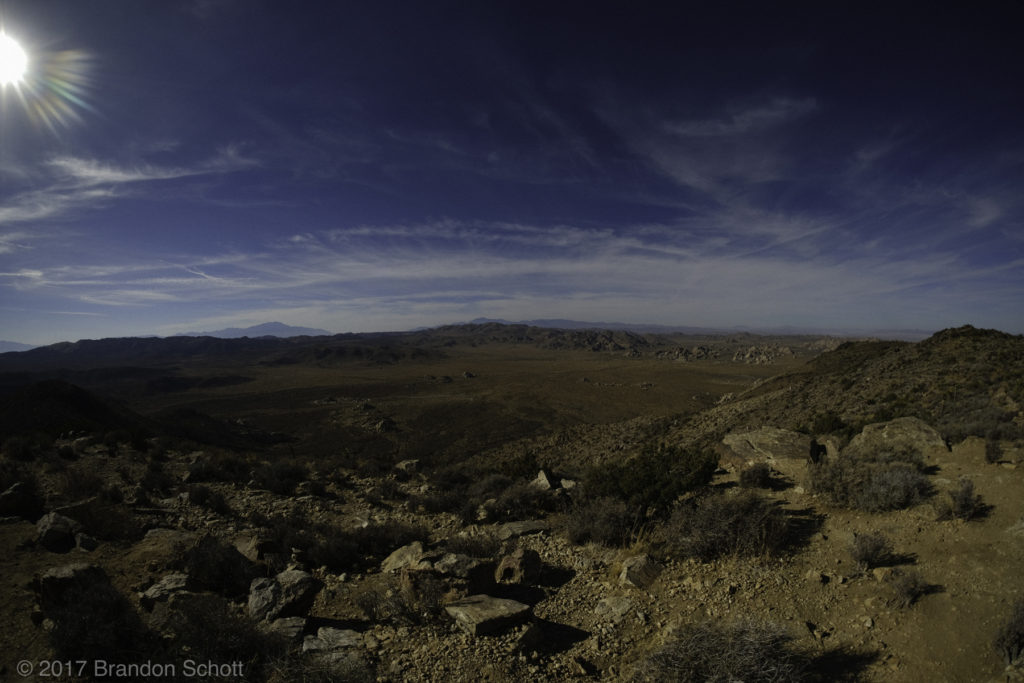



Comments